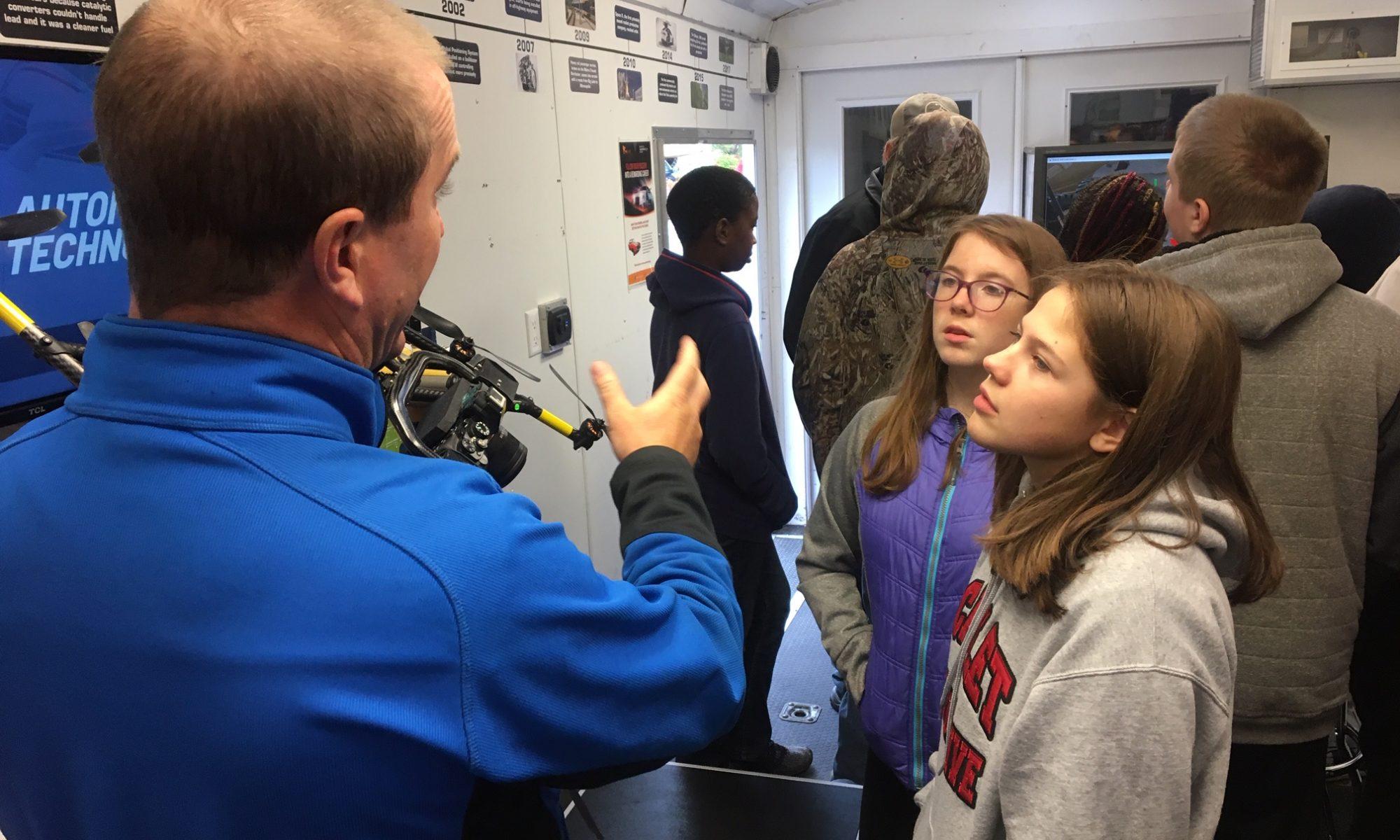November 27, 2019
Outreach: Creating Career Passion and Interest through Industry Partnerships.
I recently had the opportunity to collaboratively present on the subject of “Creating Career Passion and Interest through Industry Partnerships” at the CTE Works conference in Bloomington, MN. Although most of this will likely be considered obvious to veteran instructors and established industry leaders, the idea that intentionally involving industry in your outreach efforts is not always a default strategy used by promoters and recruiters. The following is a summary of my notes from that presentation.
Notes:
Within every outreach effort we make, we seek to find meaningful and fulfilling ways to engage our audience AND to bring credibility to the transportation industry. Partnering with instructors and industry professionals provides the following:
- Access to today’s tools and technologies.
- Simulators – training simulators can give a “this-is-how-it-feels” experience to students, but the best are usually very expensive, so the most effective ones are those that industry and colleges can provide. (i.e. heavy equipment, heavy truck, aviation, hybrid trainer)
- Diagnostic tools – prospective students/employees learn that the industry is progressive and modern through demonstrations of scan tools, GPS fleet trackers, borescopes, thermal imaging cameras, etc.
- State-of-the-art facilities – industry tours are the most effective way of showing potential workers what their future job might “look” like. It’s also an opportunity for potential employers and academic institutions
- Real-world credibility.
- “I love my job and I make a lot of money!” (employee perspective) – I can talk all day long about the money someone can make, but the most credible source is someone working in the industry, and if at all possible, someone close to your audience’s age.
- “This is what we pay.” (employer perspective) – again, when an employer talks about how much they pay, the audience knows without a doubt, this is how much money I will make.
- “In my class, you will…” (instructor perspective) – I believe that prospective students want to know what their typical college day and coursework will be like. Instructors have the ability to say exactly what that will be, with them.
- “These people do this every day, and they have good lives.” (parental perspective) – for “non-believers” there is an inherent skepticism of those who they believe to be “sellers.” Industry professionals help eliminate the risk of feeling “tricked” into a career that isn’t fulfilling or meaningful. I believe strongly that at the end of the day, parents want what’s best for their children. They want them to have meaningful and fulfilling careers, and standing face-to-face with a person who is currently living that life can provide assurance of that.
- Personnel connections and prominent influencers.
- Face-to-face interactions with instructors – instructors are also industry professionals. When students have the opportunity to interact with instructors they often gain a sense of the educational culture they are potentially headed into, and hopefully an increased willingness to further explore the option.
- Face-to-face interactions with employers/employees – when prominent influencers (i.e. teachers, parents, counselors, siblings, relatives) interact with professionals in the field, they are more likely to see the options as real and viable. Real jobs. Real people.
- Stigmas are reduced and audiences can “see themselves” in the careers.
- “Showing what a scientist looks like.” – helping students “see themselves” in transportation pathways. Reference the activity, “What does a scientist look like?”
- “Not just a bunch of gear heads.” – Our partners aren’t just a bunch of “gear heads, super truckers, grease monkeys, shop nerds, etc.” from the other end of the school. Transportation is more creativity, art, technology, critical thinking, and problem solving than most students realize.
Summary:
College and career pathways in transportation are meaningful and fulfilling. They are not “just jobs.” I can’t stress enough that the traditional model of a recruiting specialist, well versed in presenting the pathways and financial prospects of them, is not enough to fix the problem of insufficient interest in, or passion for, the transportation industry. We must intentionally design our outreach efforts to meet the needs of audiences who are less and less likely to have experience with the trades and/or opportunities in K-12 education to grow in the subject area. By creating platforms and facilitating opportunities for industry partners to share their resources of equipment and experience, we can most effectively deliver to students experiences in the pathways that will hopefully inspire their pursuit. The credible, first-hand knowledge and experience, which industry partnerships provide are one of the most valuable tools we can use in our quest to fix the shortage of professionals in the field of transportation, and perhaps all the trades.

